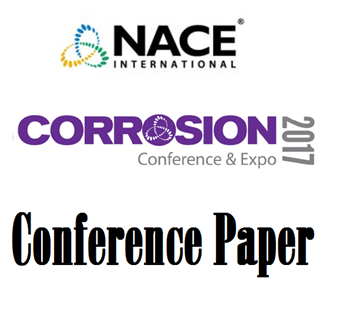Search
Non-Metallic Piping Systems for Corrosive Fluid Processing
Also Purchased
06223 Life Cycle Maintenance Considerations of Non-Metallic Process Equipment Compared to Metallic Equipment
Product Number:
51300-06223-SG
ISBN:
06223 2006 CP
$20.00
Evaluation of Degradation of a Fiberglass Pipe Exposed to Two Industrial Fluids
Product Number:
51317--8985-SG
ISBN:
8985 2017 CP
Publication Date:
2017
$20.00
Non-metallic Applications in Oil & Gas Industry
Product Number:
MPWT19-14383
Publication Date:
2019
$0.00
Recently viewed




